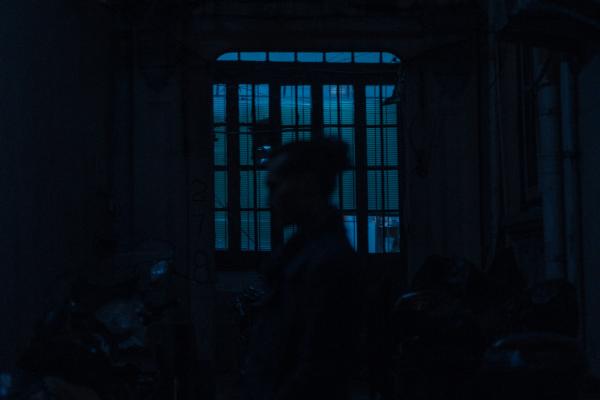This past Sunday, some of the only Christians legally permitted to gather in person for worship in many states were those of us who gathered for worship in prisons. I am a chaplain at a women’s minimum custody prison, and I welcomed my congregation to worship with the words, “Tonight we are not just worshipping for ourselves. We are standing in the gap for Christians in the whole state and in much of the nation who are not permitted to gather together to read the lectionary, say the Lord’s Prayer, or celebrate the Eucharist.”
In their state-issued, teal uniforms, my congregation jumped to their feet with cheers and shouts of “Amen!”
In this season of coronavirus, incarcerated women can no longer visit with their children or families. The prisons no longer permit volunteers, and home leave passes have been canceled. Incarcerated people can no longer leave for offsite jobs at our state’s fast food restaurants, government buildings, and social service agencies. But chaplains are continuing to serve in prisons, and amid the wider climate of shutdowns and sheltering in place, our state office sent explicit instructions that prison chaplains were to continue offering access to Christian worship and “prefilled cups/wafers for Communion.”
In many ways, prisons are accustomed to social isolation. I have never been permitted to hug or touch my congregants. Our safety and security procedures mandate the use of pre-sealed Communion cups with individual wafers shrink-wrapped to the top. These are a few of the host of policies that make prisons — even religious life in prisons — feel sterile and lonely. Now, in a world of sterile and lonely conditions, we are oddly well-positioned.
But the reality is there is simply no such thing as social distancing in prison. My congregation sleeps together in dorms of roughly 40 people, in rows of bunkbeds with less than two feet between them. They eat together on stools attached to cafeteria tables with less than a foot between them. With most people pulled off their job sites, our dayroom routinely houses more than 60 women at a time. Gathering in the chapel for worship is the most spacious thing my congregants did all week.
While prison administrations around the country are scrambling to institute hourly cleaning protocols, manufacture alcohol-free hand sanitizer, and increase distribution of disinfectants in their facilities, there is no avoiding the truth that once the coronavirus gets into any given facility, it will spread like wildfire. As one of my congregants said this week, “We are all sitting ducks.” The very conditions of forced confinement that enable incarcerated people to continue to gather for worship are the same conditions that will quicken their infection and death. The real reason that the church behind bars can continue to gather during the COVID-19 outbreak is that their bodies have already been risked.
But this is nothing new. Jesus has always inhabited a risk-able body. Jesus was born a poor, occupied minority. Even within his own Jewish community, he was considered to be from the “wrong part of town” (John 7:41-52). Jesus didn’t show up in public spaces the way he was expected to, and all these things rendered Jesus vulnerable to arrest (John 7:30-32, 43-44). We are staring down the barrel of Holy Week, in which we remember that Jesus was arrested, tried, convicted on charges of sedition, sentenced to crucifixion, and executed by the state. To say that in the time of coronavirus, the gathered body of Christ is behind bars is to say that Jesus is where he has always been.
This year, the drama of the passion is being played out, not in the pageantry of stations of the cross, but in the bodies of the 2.3 million people in our nation’s prisons and jails for whom COVID-19 could easily be a death sentence.
I would like to believe that Christians are an Easter people. But the re-membered body of Christ is in custody right now, and we are doubling down on the logic of crucifixion. This week, the lectionary reading from Psalm 130:7 told us that the Lord is “full of liberation.” In less than two weeks, we’ll read that Jesus was set free from a well-guarded tomb leaving officers stunned and disciples both scared and joyful (Matt. 27:62-28:10). When Jesus beats the death penalty and is released from the grave of state-sponsored confinement, his first words to his followers are, “Do not be afraid” (Matt. 28:10).
The most faithful thing we could do this week to reject the crucifixion of Jesus and live into his resurrection is to call our various governors and ask for prisoners to be set free before it is too late. Advocates nationwide are calling for the release of nonviolent offenders, the elderly, and people with one year or less on their sentence. These are very low-risk groups whose release could create more space inside facilities to stop the virus among those who would remain incarcerated. As someone working inside, I believe that we would be better served by widening the call for depopulation to include anyone who has made it to minimum custody, anyone with two years left on their sentence, and anyone who has served more than 20 years already. The prophet Isaiah might just say, “Set the captives free.”
My congregation is standing at the altar for you while you are confined to your homes, lonely and struggling. We sing for you, we pray for you, and we remember you as we become the re-membered body of Christ at the Lord’s Table each week. I am asking that you, in return, stand in the gap for the incarcerated church by calling for their release in the face of this global pandemic.
Got something to say about what you're reading? We value your feedback!






